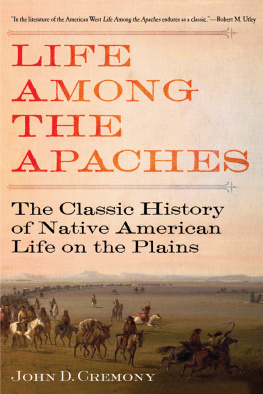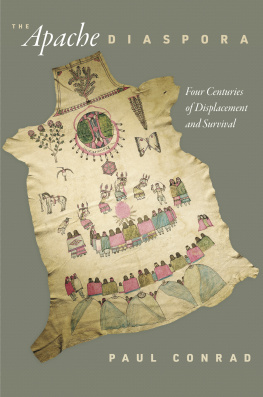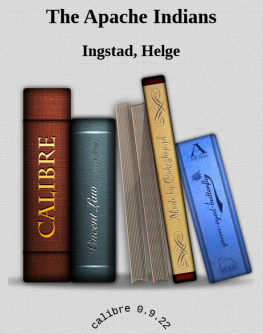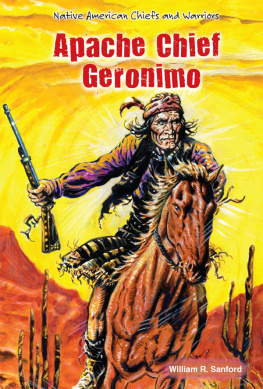

First published in 1868
First Skyhorse Publishing edition 2015
All rights reserved. No part of this book may be reproduced in any manner without the express written consent of the publisher, except in the case of brief excerpts in critical reviews or articles. All inquiries should be addressed to Skyhorse Publishing, 307 West 36th Street, 11th Floor, New York, NY 10018.
Skyhorse Publishing books may be purchased in bulk at special discounts for sales promotion, corporate gifts, fund-raising, or educational purposes. Special editions can also be created to specifications. For details, contact the Special Sales Department, Skyhorse Publishing, 307 West 36th Street, 11th Floor, New York, NY 10018 or info@skyhorsepublishing.com.
www.skyhorsepublishing.com
10 9 8 7 6 5 4 3 2 1
Library of Congress Cataloging-in-Publication Data is available on file.
Cover design by Anthony Morais
Cover photo credit: Alfred Jacob Miller
Print ISBN: 978-1-62914-370-5
Ebook ISBN: 978-1-63220-023-5
Printed in the United States of America
TO THE PIONEER AND LIBERAL PUBLISHER,

THE ZEALOUS AND ENTERPRISING FRIEND OF LITERATURE ON
THE PACIFIC COAST, THIS UNPRETENDING VOLUME IS
RESPECTFULLY DEDICATED AS A TRIBUTE
OF THE AUTHORS ESTEEM.
CONTENTS OF THE VOLUME.

PREFACE.

T HOSE who may favor the succeeding pages with their perusal, must not expect any attempt at fine writing or glowing description. The authors intention is, to furnish a plain, unvarnished tale of actual occurrences and facts illustrative of the various tribes of Indians occupying that vast region which extends from the Colorado river on the west, to the settlements of Texas on the east, and from Taos in New Mexico to Durango in the Mexican Republic.
In the front rank of the tribes, occupying the region included within the limits mentioned, stands the great Apache race, and next are the Comanches. The former of these will engage most of the authors attention for very many and obvious reasons. It is believed that the book will contain a large amount of valuable information, to be derived from no other source extant, and it will be the authors endeavor to place it before his readers in a manner which will engage their attention. Nothing not strictly true will be admitted into its pages, and if some of the incidents narrated be found of a thrilling character, the reader will experience satisfaction in knowing that they are not the results of imaginative picturing. Whenever a personal adventure is narrated, it will be found to illustrate some particular phase of character; none are recounted which do not convey information.
Our Government has expended millions of dollars, in driblets, since the acquisition of California, in efforts to reduce the Apaches and Navajoes, who occupy that extensive belt of country which forms the highway for overland migration from the East to the West; but we are as far from success to-day as we were twenty years ago. The reason is obvious. We have never striven to make ourselves intelligently acquainted with those tribes. Nearly all that relates to them is quite as uncertain and indefinite to our comprehension as that which obtains in the center of Africa. Those who were the best informed on the matter, and had given it the closest attention, were, at the same timemost unfortunatelythe least capable of imparting their information; while those who were almost ignorant of the subject have been the most forward to give the results of their fragmentary gleanings. If this volume shall have the effect of bettering our present deplorable Indian policy, by letting in some light, it will accomplish the authors object.
S AN F RANCISCO , August, 1868.
J. C. C.
CHAPTER I.
Comanche Raid.Detailed to send them away.Interview with Janamata.Description of the Chief. Comanche Raid.Detailed to send them away.Interview with Janamata.Description of the Chief.
M Y first business acquaintance with Lo occurred in the year 1847. A band of about one hundred Comanche warriors, led by a chief named Janamata, or the Red Buffalo, taking advantage of the subdued and defenceless condition of the Mexicans, crossed the Rio Grande, about seventy miles below Old Reynosa, and commenced a series of depredations. Information was immediately given to the American officer commanding at that post, and the writer was detailed, with a force of fifty men, to drive off the invaders, with orders not to engage in hostilities, unless the Indians proved refractory and deaf to all other appeals.
After marching fifty miles, which was accomplished in two days, we arrived at the scene of operations, meeting the Comanches on the highway. Our force was immediately disposed to the best advantage, and placing a white handkerchief on the point of my sabre, I advanced alone toward the chief, who, leaving his warriors, rode forward to meet me. He spoke Spanish fluently, having evidently acquired it in his many marauding excursions into Mexico. Having met, I offered him a cigarito, which was accepted with Indian stoicism. We smoked in perfect silence for half a minute, when the cigaritos having been consumed the following dialogue took place:
Officer .I am sent to tell you, that you must recross the Rio Grande with your warriors, and come here no more to molest these people while we remain in the country.
Indian .I hear your words. They are not pleasant. These Mexicans are our natural enemies; we have warred against them for many years. They are also your enemies. You are killing them in their own country, the same as I am. The Comanches are friends to the Americans. Why do you prevent your friends from hunting your enemies and theirs?
Officer .Red man, you mistake. These people were our enemies, but they have yielded, and all who have submitted are under our protection. We have ceased from doing them harm, and if we permit you to injure them after we have disarmed them, it would be the same as if we did so ourselves.
Indian .But your revenge is for yourselves.. It does not satisfy us for the blood of Comanches slain by Mexicans. You made war upon them without our consent or knowledge. We do the same. A wise warrior takes advantage of his enemys weakness. It is now our opportunity.
Officer .These people are our captives, and cannot continue to be your enemies while in that condition. Suppose you had a dozen Apache captives, would you permit the Kaddos to come into your camp and kill them; take their property and go off without resistance?
Indian .White man, your tongue is double, like a womans; but the Comanche does not feel to war against his American brothers. I and my people will recross the Rio Grande, but will not promise never to come back. Good-by.
Our colloquy endedwe smoked another cigarito; he waved his hand to his warriors, and without another word directed his course to the river, which was soon waded, and Janamata, with his followers, stood on American soil. This little interview imparted the knowledge that the American savages are rather keen logicians, from their own uncivilized stand-point, as they are incapable of appreciating the moral and religious sensibilities of enlightened races.
Next page








